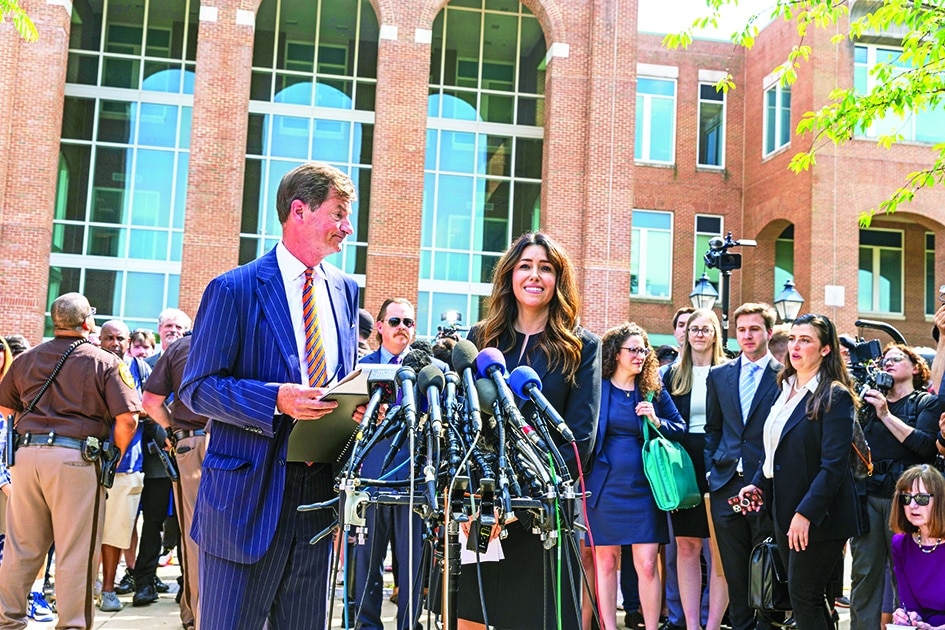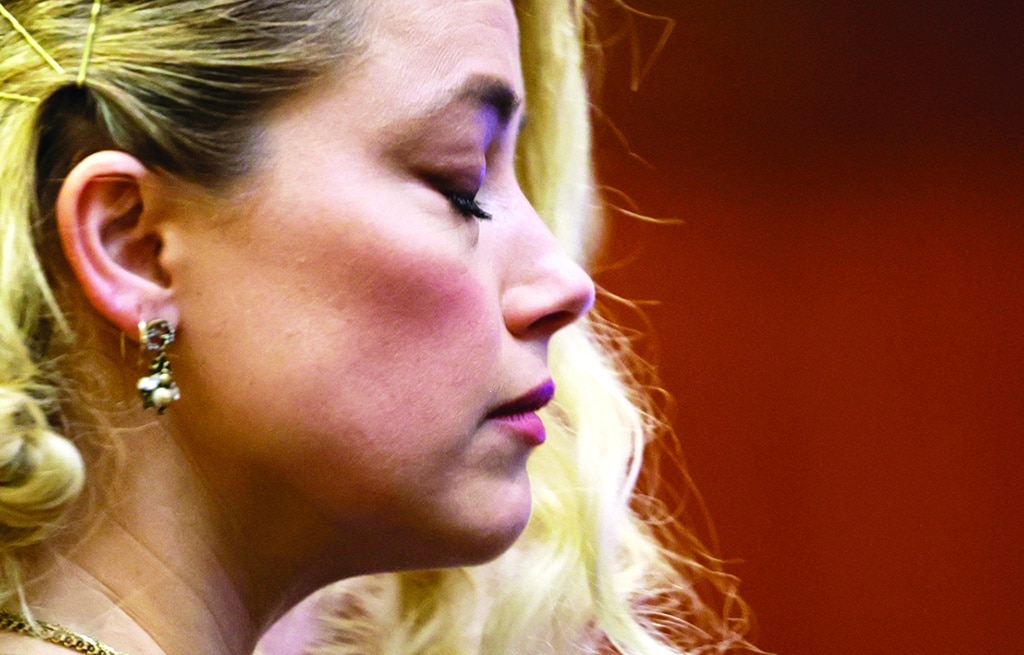In this analysis, EL PAIS takes an in-depth look at the jury's decision, the likelihood it will be appealed and what it means for both parties. A seven-person jury reached a verdict on Wednesday in what may be the most-talked-about case since the -trial of basketball star O. J. Simpson - the defamation battle between actor Johnny Depp and his ex-wife Amber Heard.
After an intense six-week trial, which heard allegations of sexual assault and physical abuse, the jury ruled that both parties were guilty of defamation, but not to the same degree. While Heard was sentenced to pay Depp $15 million in damages, Depp must only pay Heard $2 million - a clear win for the Pirates of the Caribbean star. But this is just one element of the much-anticipated verdict. Here is a breakdown of the main keys to the jury's decision.
 US actress Amber Heard looks to her lawyer Elaine Bredehoft after the jury announced a split verdict in favor of both Johnny Depp and Amber Heard.
US actress Amber Heard looks to her lawyer Elaine Bredehoft after the jury announced a split verdict in favor of both Johnny Depp and Amber Heard.- The verdict
The jury had to decide whether or not six specific statements - three from each side - were defamatory. Depp was suing Heard over statements she made in an op-ed in The Washington Post, in which she claimed she was a victim of abuse. While Heard was suing the actor for comments made by Depp's former lawyer, who accused the actress of lying.
The jury ruled that all three of Heard's statements were defamatory, while only one comment from the lawyer was found to have been harmful. During the trial, the Aquaman star claimed that her ex-husband had struck her and sexually assaulted her. The jury did not rule on whether or not this happened, but given that they found her statements to be defamatory, it can be inferred that they did not believe her testimony i.e. that she was not a victim of abuse. This gives Depp a moral victory, as well as $15 million in damages.
2. Amber Heard's statements
The jury ruled that all three statements made by Heard in her op-ed were false and harmed Depp, meaning they were defamatory. These were the statements:
"I spoke up against sexual violence - and faced our culture's wrath. That has to change." "Then two years ago, I became a public figure representing domestic abuse, and I felt the full force of our culture's wrath for women who speak out."
"I had the rare vantage point of seeing, in real time, how institutions protect men accused of abuse." Despite the fact that Heard's article did not mention Depp by name, the jury responded "yes" to the following three questions: "The statement was about Mr. Depp," "The statement was false" and "The statement has a defamatory implication about Mr. Depp."



3. Johnny Depp's statements
With respect to Heard's claim, the lawsuit focused on statements made by Depp's former lawyer Adam Waldman in The Daily Mail. Although the actor did not make the comments, Heard argued that the lawyer said them on his behalf.
Of the three statements, this was the only one found to be defamatory:
"Quite simply this was an ambush, a hoax. They set Mr Depp up by calling the cops but the first attempt didn't do the trick. The officers came to the penthouses, thoroughly searched and interviewed, and left after seeing no damage to face or property. So Amber and her friends spilled a little wine and roughed the place up, got their stories straight under the direction of a lawyer and publicists, and then placed a second call to 911." (The Daily Mail, April 27, 2020).
The jurors ruled that the other two did not were not defamatory:
"Amber Heard and her friends in the media use fake sexual violence allegations as both a sword and a shield, depending on their needs. They have selected some of her sexual violence hoax 'facts' as the sword, inflicting them on the public and Mr. Depp." (The Daily Mail, April 8, 2020).
"[W]e have reached the beginning of the end of Ms. Heard's abuse hoax against Johnny Depp."(The Daily Mail, April 27, 2020).
In other words, the jury did not consider it defamatory to claim that Heard had made "fake" and "hoax" accusations about being the victim of sexual abuse. But it did think it was defamatory to say that she and her friends had "roughed up" a place to make it appear like a scene of violence.
4. Damages
Depp's defamation lawsuit demanded $50 million (€47 million) in compensation. Heard countersued for $100 million, although her lawyer stated this amount was only intended to "send a message" to the actor.
In both cases, the jury awarded a lower amount. Heard was sentenced to pay Depp $10 million in compensatory damages and another $5 million in punitive damages. However, legislation in the state of Virginia, where the trial was held, limits punitive damages to $350,000. As a result, the judge reduced the damages to a total of $10.35 million.
Depp, meanwhile, must pay Heard $2 million in compensatory damages. The jury did not award her any punitive damages, meaning the jury did not think the actor should be punished. This is another moral victory for Depp. Apparently, instead of putting a zero in the box for punitive damages, the jury left it blank, which caused a tense, minutes-long delay in the reading of the verdict.-www.english.elpais.com











